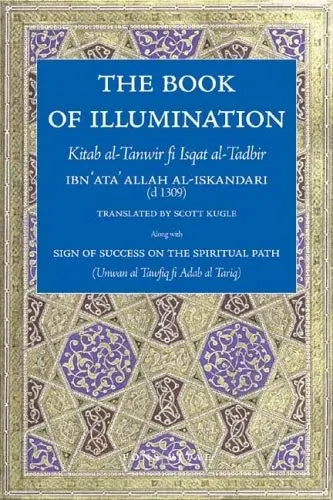The Book of Illumination is a translation of al-Tanwir fi Isqat al-Tadbir, a Sufi text composed by the Muslim saint and jurist, Ibn Ata'illah al-Iskandari. The text is about avoiding the anxieties associated with rational calculation, hoarding wealth, and exercising self-interest. It consists of ethical commentary on the Qur'an, traditions of the Prophet Muhammad, and examples of North African Sufi masters. The author meant it to be an ethical introduction to Sufi mysticism, a first stepping-stone for aspirants who would experience spiritual intimacy with God within the framework of Islamic ethics and law.
While revealing important characteristics of North African Islamic thought, The Book of Illumination also addresses the concerns of contemporary audiences. The text offers deep insight into topics crucial to many people who are exploring "spirituality" in the age of late capitalism with its consumer-driven economics and endless production of new desires and proliferation of choices. Though thoroughly medieval in its subtle elaboration on the richness of scripture and its belief in the efficacy of sainthood, The Illumination is also uniquely contemporary in its piercing critique of selfish desire and rational calculation. The argument of this thirteenth century Muslim author articulates an "Islamic work ethic" that challenges many sociological assumptions of Max Weber while simultaneously dissecting many assumptions of our contemporary consumerist culture whose triumph Weber had announced with such ambivalence.
About Author:
Ahmad ibn Mahammad Ibn ‘Ata‘ Allah al-Iskandari (died 1309) was a Malikite jurist, muhaddith and the third murshid (spiritual "guide" or "master") of the Shadhili Sufi order. He was born in Alexandria and taught at both the al-Azhar Mosque and the Mansuriyyah madrasa in Cairo. He was responsible for systematizing Shadhili doctrines and recording the biographies of the order's founder, Abu-l-Hassan ash-Shadhili, and his successor, Abu al-Abbas al-Mursi. He is credited with having authored the first systematic treatise on dhikr, The Key to Salvation (Miftah al-Falah), but is mostly known for his compilation of aphorisms, the Hikam al-‘Ata‘iyya. Commentaries on the Hikam have been made by some of the most famous masters of the Shadhili order such as Ibn Abbad al-Rundi, Ahmad Zarruq and Ahmad ibn Ajiba as well as non-Shadhilis like the Islamic law Professor Sa'id Ramadan al-Bouti. The wide circulation of Ibn ‘Ata‘ Allah's written works led to the spread of the Shadhili order in Norrth Africa, where the order's founder had been rejected in earlier attempts. The Wafai Sufi order was also derived from his works. He died in 1309 while in Cairo.
Ibn ‘Ata‘ Allah was one of those who confronted the controversial theologian Ibn Taymiyya, who was jailed several times for his views on religious issues, for his excesses in attacking the Sufis and his opposition to tawassul.
About Translator:
Scott Kugle joined the Department of Middle Eastern and South Asian Studies in Fall 2010. He received his PhD from Duke University in 2000 in History of Religions after graduating from Swarthmore College with High Honors in Religion, Literature, and History. His dissertation, In Search of the Center: Authenticity, Reform and Critique in Early Modern Islamic Sainthood, examined Sufism in North Africa and South Asia. His fields of expertise include Sufism, Islamic society in South Asia, and issues of gender and sexuality. He is the author of four books and numerous articles, including Sufis and Saints' Bodies: Mysticism, Corporeality and Sacred Power in Islamic Culture (UNC Press, 2007) and Homosexuality in Islam: Critical Reflection on Gay, Lesbian and Transgender Muslims (Oneworld Publications, 2010). He conducts research in India and Pakistan; his research languages are Arabic, Urdu, and Persian. Before coming to Emory, Kugle was an Assistant Professor of Religion at Swarthmore College and, most recently, a research scholar at the Henry Martyn Institute for Islamic Studies, Inter-Religious Dialogue, and Conflict Resolution in Hyderabad, India.
show more

